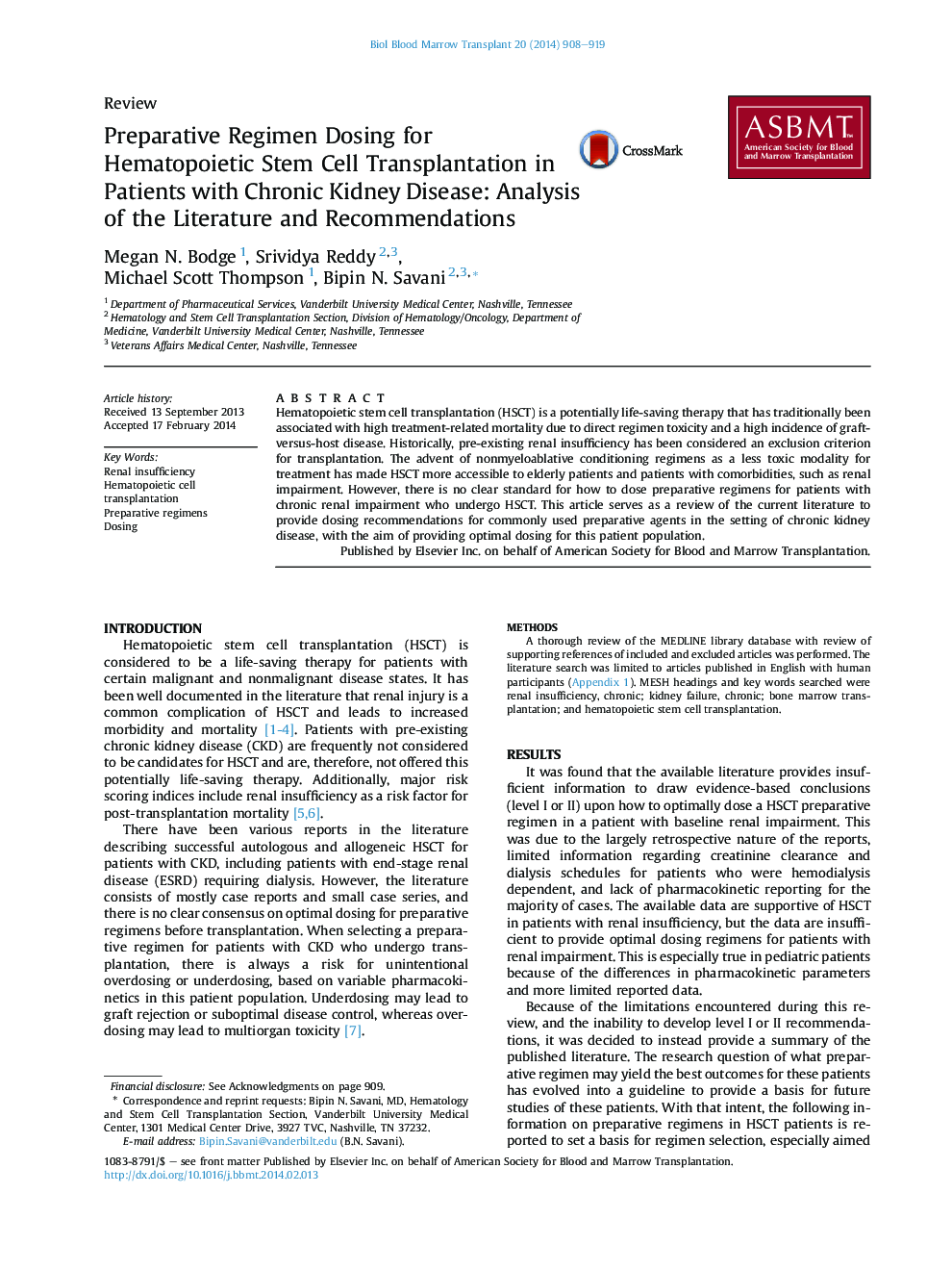| Article ID | Journal | Published Year | Pages | File Type |
|---|---|---|---|---|
| 2102303 | Biology of Blood and Marrow Transplantation | 2014 | 12 Pages |
Hematopoietic stem cell transplantation (HSCT) is a potentially life-saving therapy that has traditionally been associated with high treatment-related mortality due to direct regimen toxicity and a high incidence of graft-versus-host disease. Historically, pre-existing renal insufficiency has been considered an exclusion criterion for transplantation. The advent of nonmyeloablative conditioning regimens as a less toxic modality for treatment has made HSCT more accessible to elderly patients and patients with comorbidities, such as renal impairment. However, there is no clear standard for how to dose preparative regimens for patients with chronic renal impairment who undergo HSCT. This article serves as a review of the current literature to provide dosing recommendations for commonly used preparative agents in the setting of chronic kidney disease, with the aim of providing optimal dosing for this patient population.
